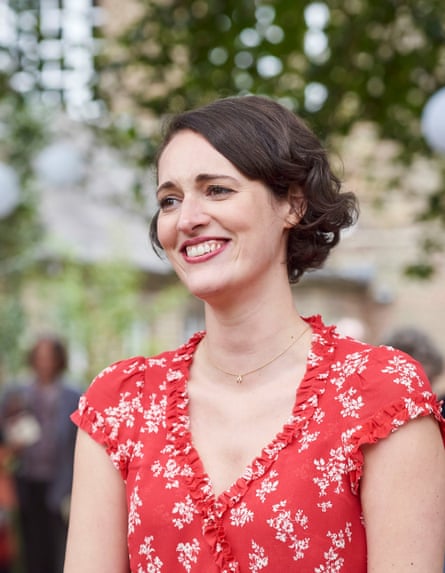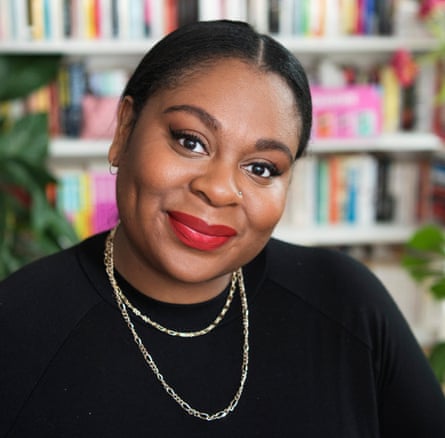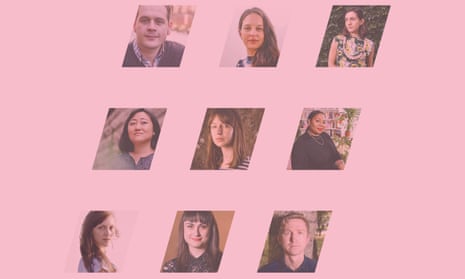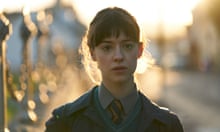“There’s no writing,” Bret Easton Ellis declared recently of millennials. “They don’t care about literature. None of them read books.” Ellis asserted this during the publicity tour for his book White, a collection of essays about contemporary culture, presumably while his long-suffering millennial boyfriend Todd ripped through the latest Sally Rooney in the next room.
Putting aside Ellis’s claim not to know who Rooney is, it’s predictable that literature should be yet another realm in which this generation is dismissed. The anointing of one book as a cultural touchstone, one individual as the oracle, and the fallacy of meritocracy that underpins it, is patently absurd. But as with every other millennial-bashing trope, so is the generalisation about our inability to produce one.
As any digital marketeer with their crosshairs on millennials will tell you, the way we “consume” culture has fragmented. Perhaps that’s why Rooney hasn’t appeared on Ellis’s radar. Put in less depressing terms, we have a greater range of representative voices to choose from than in Ellis’s decadent brat-pack days. The aim of publishing now should be to widen that range further. We don’t need to coalesce and, contrary to what Ellis seems to think leviathans do for literary culture, the less we laud one as the template, the more space we open up for a greater number of new writers to write more books, more freely.
In addition to this cultural fragmentation and welcome increase in diversity, the millennial mood is suspicious. We aren’t desperate to lionise our writers, perhaps associating hyperbole with previous con jobs; the “too big to fail” rhetoric that led to 2007-2008’s financial crisis, populist political movements, dodgy claims on the sides of buses and Fyre festival. A certain kind of millennial art can serve to bond certain kinds of millennials together in these uncertain times, but the spotlight on a Rooney or a Phoebe Waller-Bridge can reach an intensity that obscures everyone else (earlier this month, a book of scripts for the two series of Fleabag was subject to an eight-way auction and sold for a six-figure sum). It’s not that the worlds of Rooney and Waller-Bridge aren’t painfully true for a certain demographic, or that their creators don’t deserve praise and recognition, but the idea that one writer or character can speak for so many in this fractured age seems delusional. Few of us who are actually millennials have taken the phrase “voice of a generation” seriously since Hannah Horvath used it in Lena Dunham’s Girls.

I read Rooney’s Conversations with Friends in a matter of hours in early June 2017, having heard little about it. The experience was uncanny and electric. If I had to pick my own “great millennial novel” it might well be that one, but I’m a cis, white, middle class, metropolitan millennial woman who got a scholarship to a school where I met my own Bobbi, so it was easy to relate. In an Irish Times interview, Rooney says: “I certainly never intended to speak for anyone other than myself. Even myself I find it difficult to speak for. My books may well fail as artistic endeavours but I don’t want them to fail for failing to speak for a generation for which I never intended to speak in the first place.” Elsewhere, she has expressed her disdain for literary celebrity. In Normal People, her male protagonist Connell, a fledgling writer, is alienated by a cohort who turn up to literary events for their rarefied atmosphere and the opportunity to perform culturedness. Rooney, a Marxist, is presumably sceptical of the designation “great millennial novelist” too, if only for how it will be used as a marketing strategy to commodify her writing. A “great millennial novelist” becomes a product, used to sell other products to other millennials. Such a label undermines the power of a book to speak across generations and to structures of power that govern both the publishing industry and the wider world it reflects.
When my first novel, Sympathy, was published in 2017, one reviewer called it “the first great Instagram novel”, which, as a marketing strapline, stuck. Some reviewers then dedicated themselves to proving or disproving the claim my own book hadn’t made, which meant discussion of the book was often confined to social media addiction, ignoring surveillance, data capitalism and how such technology shapes our collective future. I was called on to make sweeping statements about my generation, when it seemed more pertinent to talk about the tyranny of algorithms and Cambridge Analytica.
In contrast to the ways they are marketed and their media reception, millennial novels, if they have a common aim, push against labels, pedestals and the uncritical lauding of spokespeople. They care more about being relatable to a specific audience than a universal one. This resistance, bordering on impostor syndrome, is part of what makes them feel true to the millennials who read them. The protagonists of these novels eyeroll at marketing taglines, tired hierarchies, male canons and influencers. Self-definition is a millennial forte, but its novelists seem dubious of anything so earnest as defining a literary epoch. Their fictional worlds lambast our need for external validation and commodified selfhood of the kind that feeds late capitalism, even as they acknowledge their complicity and the impossibility of extrication.
Some books deal with these themes through realism, as Rooney’s do, alongside Joe Dunthorne’s The Adulterants, in which a thirtysomething struggles with impending fatherhood, and Candice Carty-Williams’s Queenie, whose eponymous heroine is evicted by her ex. There is a seam of very dark satire, as in Ottessa Moshfegh’s My Year of Rest and Relaxation, whose nihilistic protagonist finds solace only in unconsciousness, and Halle Butler’s The New Me, in which misanthropic Millie attempts to move from office temp to “perm” in the job she despises. An increasing number are more dystopian, such as Luiza Sauma’s Everything You Ever Wanted, which sees millennial contestants on a reality show relocate to another planet, Ling Ma’s zombie-apocalypse-meets-office-novel Severance, Luke Kennard’s The Transition, about young people compelled to participate in a scheme that schools them in the ways of adulthood, and Catherine Lacey’s The Answers, in which a broke young woman opts to monetise herself by performing the role of a man’s “emotional girlfriend” in a scientific experiment.

The crop of recent novels that have been termed “millennial” depict a rootless, anxious life: a rat race whose illusory prize for sacrificing your soul is a bare minimum of social acceptance and financial security. Their protagonists tend to be navigating or avoiding adulthood, usually desperate, disenfranchised, displaced, ironic, full of rage or grim humour that covers unbearable shame and sadness. Rather than the violence and amorality described in a previous “generation-defining” book such as Ellis’s Less Than Zero, they tend toward self-sabotage or perform cheeriness under constant surveillance while slowly dying inside. And did I mention the humour?
These may be the characteristics of the genre, but there is still no consensus on whether a “millennial novel” is qualified by an author’s age or that of its main protagonists, or even the age of the readers it is marketed to. I would argue that it is two things taken together: the age of the novelist (born between 1981 and 1996) and the novel’s own mood and preoccupations – even when these are not set in the immediate present.
Moshfegh, for example, born in 1981, just qualifies, though that does not mean all her novels should be pigeonholed as millennial. My Year of Rest and Relaxation is set before 9/11. The optimism of that time, with all its end-of-history narratives, now seems delusional, and the unnamed protagonist’s coping strategy (a self-induced pharmaceutical coma inside the bubble of her apartment) fairly reasonable, though beyond the means of the millennials who come after her. It is this preoccupation with what Ellis might mock as safe spaces that permeates millennial novels for me. A longing for a place of security and stability that can insulate characters from, if not fix, their alienation. It is one thing to hate the world and want to change it, as many books that “defined” previous generations did, but if you hate yourself, nowhere feels like home for very long; relief is found in certain physical places, memories, a person, a routine or mind-numbing substance. The need for these in millennial novels is always, at least in part, a response to the death throes of a ruthless economic system that makes us feel like outsiders to ourselves, a system propped up by ecocide, racism, sexism, the class system and heteronormativity. The longing is alleviated only by revulsion.
In Rooney’s work this combination of homesickness and alienation is located in the complex relationships between her protagonists – Frances and Bobbi, Connell and Marianne. In Sauma’s Everything You Ever Wanted, it’s in the pink oblivion of planet Nyx (which, ironically, comes to look like a screensaver) and subsequent nostalgia for Earth. In Carty-Williams’s Queenie, it’s in the memory of Queenie’s grandmother’s attic after her mother rejects her. In Butler’s The New Me it is Millie’s parents’ home and their comforting infantilisation of her. In Ma’s Severance, it’s the familiarity of Candace’s office, the zombies who return to the mall out of habit, and memories of China. In her recent debut Supper Club, Lara Williams describes a group of hungry, disappointed women who meet in secret locations to commune, eat, drink, dance, throw up and take drugs in peace, while in The Transition, Kennard’s protagonists take uneasy shelter in the home of their older mentors rather than go to prison.
But there are also very specific ways in which this longing for refuge differs from book to book that have very little to do with being a millennial. Ma’s Candace Chen keeps working at her job after the zombie apocalypse partly because she is the child of Asian immigrants. She has internalised a pressure to succeed, much as Carty-Williams’s Queenie has internalised misogynoir and, as a Windrush descendant, the government’s hostile environment policy. As a black woman she is also sexually objectified in the office, and in the marketplace of dating apps, made to feel subhuman and exploited.

Often the preoccupation with home, exile and feeling lost is very literal. Moshfegh’s orphaned protagonist describes wanting to hold on to her parents’ house “the way you’d hold on to a love letter. It was proof that I’d not always been completely alone in this world.” Thanks to the housing crisis and her racist-apologist ex who turfs her out, Carty-Williams’s Queenie is obsessed with clean homes and must suffer through interminable flat-viewings with estate agents who proposition her. She uses humour as armour and, when she can no longer joke about it, decides to disappear, even from her closest friends, by moving in with her grandmother. “I want to go home,” Butler’s protagonist Millie says. “But not to my apartment home, to my 13-years-ago home, to my hug-my-mother-home.” It’s a rare moment in which the mordant 30-year-old allows herself such sincerity. She describes previous attempts at home improvement as “a lame attempt to assert some kind of femininity or mental stability”. Ultimately one of Millie’s few, fleeting sensations of real achievement comes from finally cleaning her apartment – not so much progress as stasis, the thankless task of keeping things as they are.
All of the novels I’ve listed (and there are, of course, many more) explore this alienation and longing alongside questions of survival – the mundane rather than heroic kind. They dignify the everyday struggles of their protagonists with deadpan humour, irony and reflections on their own privilege. Moshfegh describes a muted grief. Rooney’s Frances endures undiagnosed endometriosis. The experience of Sauma’s Iris – on another planet where human life can no longer be supported – consists more of (highly readable) boredom than terror. Ma’s zombies are not particularly scary, while in Lacey’s The Answers, Mary is struggling with a chronic yet banal mystery illness. The pain leaves her feeling as if “the use of my body, the only thing I really owned, had somehow been repossessed”.

It’s worth noting here that many of the novels being called millennial are written by women. Perhaps this reveals an inequality (male literary writers tend to be credited with writing universal books rather than category specific ones), or maybe it suggests these authors are attuned to the ways certain types of people suffer more under capitalism. Many of their female protagonists are overeducated, underpaid, childless, self-loathing, precarious, ironic, anxious and full of rage. They write lists and self-harm to bring some semblance of control. They are very perceptive, but either wilfully delude themselves, or their perceptions do not tally with their actions. They alternate between self-destruction and doing what they need to survive. Even in Lila Savage’s Say Say Say, which features the rare exception of a millennial female protagonist who does not hate herself, meaning is found not in the self or succeeding over others but in low-status care work. Repetitive, mundane tasks in the service and the home of another.
The common project, which so much critical attention often misses, is not to describe a general condition of millennial womanhood, but to look at the broader structures and power dynamics that we are all part of. Any writer is a product of their age, just as any member of a generation is shaped by material conditions. As Jia Tolentino points out in her essay collection Trick Mirror, “a generation doesn’t start living a certain kind of rootless way, doing certain kind of flexible, temporary jobs, writing certain kinds of books, because of personality”. In a recent interview about her novel Ma said: “I’m not an economist or a political theorist, but I wanted to capture what global capitalism feels like on the individual scale, down on the ground floor. I wanted to show the ambivalence of an employee working at a job that contributes to an unsustainable system, and yet who feels tethered to and even takes pleasure in her work routine.”
It’s in this sense that I feel most comfortable talking about “millennial novels”. Not in terms of the most successful individual writers, but those who, though they may not be household names, show us something compelling about the times in which they live and how certain social realities are constructed. Once you create a gold standard, other books start to sound derivative – everything now seems to be “for readers of Sally Rooney”. There are only so many novelists who want to work that way to get past publishing’s gatekeepers, rather than be read on their own terms. It can be interesting to think about cohorts, but categories tend to work against certain writers and not others.
As Rebecca Liu wrote recently in her essay The Making of a Millennial Woman, there are only certain types of writers and female protagonists who are seen as relatable. Writing from the perspective of a working class person of colour rarely gets discussed in those terms. When one author manages to become the exception, it’s all too tempting for the publishing industry to give that box a big tick and elide everyone else’s stories from a similar background, even if their viewpoint is wildly different. Not every young black woman will feel represented by Zadie Smith.
Carty-Williams has said that she wrote her debut in part because she didn’t see herself in the contemporary novels she’d read and decided to be the voice she needed. For Queenie, “knowing her place” does not refer to belonging or taking up space but being mute. As a black woman trying to assimilate she is often complicit in her own erasure by falling silent. It is talking to a therapist that helps her towards self acceptance. Her grandmother is against it, having spent her life repressing her own troubles, but as Queenie’s grandfather, in Jamaican patois, states: “Maybe we haffi learn from this new generation.”
If there’s something millennials are championing, it’s speaking out. An openness to talking about what was once taboo means not knowing “our place” – from the ubiquity of the unlikable female protagonist to frankness around mental health. I’m all for this, and for as many people as possible writing their own millennial novel. But we should remember that one novel can’t be put on a pedestal without silencing countless others.








